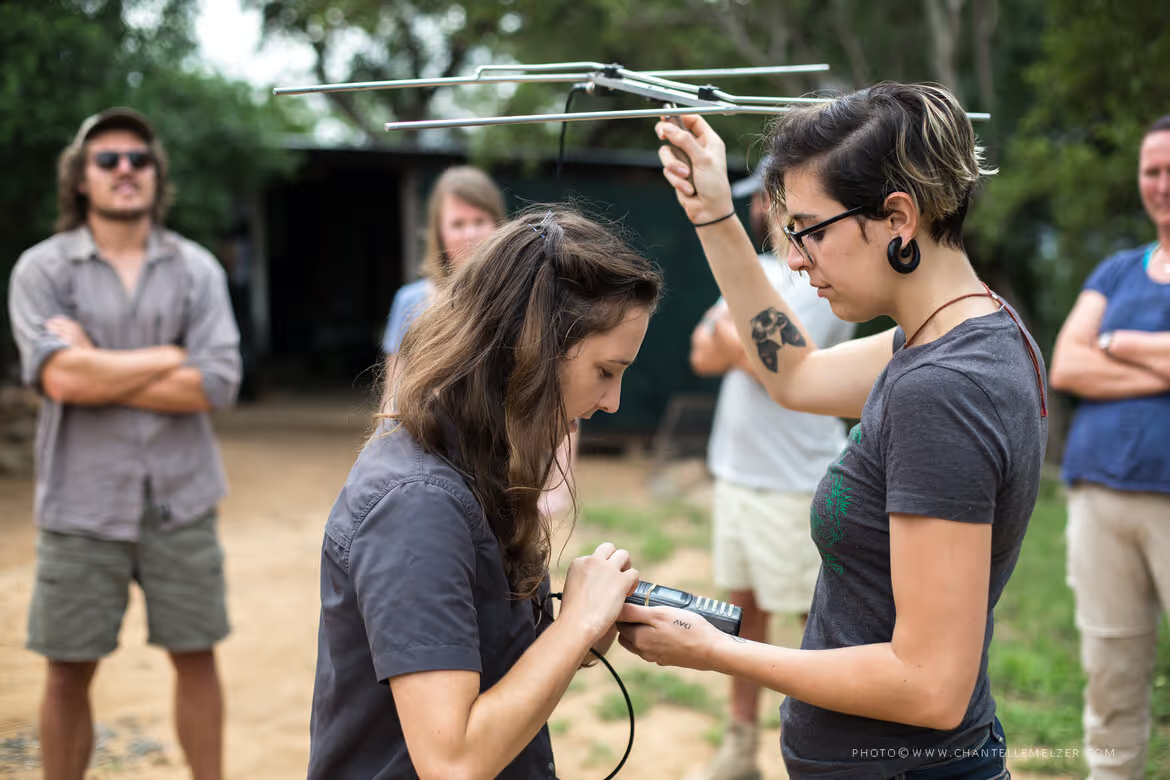
We are excited to announce that Tembe Elephant Park’s Threatened Species and Community Conservation Project is now supported by IUCN Save Our Species and co-funded by the European Union (EU).
Since their introduction 20 years ago (2002), the Tembe Elephant Park Lions (Panthera leo) have tended to stray from the expected pride structure and not formed large prides. Tembe does not have traditional prides, but rather the population comprises nine small family groups.
These dynamics have made the tracking and monitoring of this species a serious challenge. Aside from the general monitoring of group dynamics, and the condition of individual Lions within the population, additional monitoring of their movements around the swamp in the eastern section of the reserve is of particular importance to mitigate any potential human-wildlife conflict with the reed harvesters.

Tembe Elephant Park, under the management of Ezemvelo KZN Wildlife (Ezemvelo), has an agreement with the local communities that allows them to sustainably harvest reeds from the swamp within the boundary of the Park during specific months of each year. This agreement was formed to assist the low income communities that surround Tembe, to continue to utilise a valuable renewable resource that they used to harvest before the proclamation of the Park.
Keeping the reed harvesters safe requires us to know where the different groups of the Tembe Elephant Park Lions are at any one time. The only way to achieve this successfully is through the use of tracking collars. The reed harvesting season of 2022 began in April and since becoming a beneficiary of the IUCN SOS grant - in partnership the EU, the team has deployed two Lion collars, with plans to deploy a number of additional collars in the next few months. This enables the monitoring team to keep track of all the Lion family groups in the Park.

Collars are a vital tool in our daily monitoring of all priority and endangered species, including lions. However, collars are expensive, ranging from R6 500 to R40 000 depending on the technology used. Ideally there should be at least one collared individual in each group of Lions, refitted every two years – an expensive, but vital undertaking.
Unfortunately the pandemic has had an enormous and long-lasting negative impact on the conservation sectors’ income and resources, and items that are usually deemed essential, such as new collars, have had to take a back seat.


Wildlife ACT and Ezemvelo are fortunate that Tembe Elephant Park's endangered species conservation effort has received support from the IUCN Save Our Species Fund, co-funded by the European Union.
This grant has allowed us to continue vital monitoring and conservation efforts on Tembe and further support and strengthen the priority species work, including Lion, African Wild Dog, African Elephant and Black Rhino.
Disclaimer: This publication was produced with the financial support of the European Union through IUCN Save Our Species. Its contents are the sole responsibility of Wildlife ACT Fund Trust and do not necessarily reflect the views of IUCN or the European Union.
RELATED POST: A Morning in the Life of the Tembe Lions











